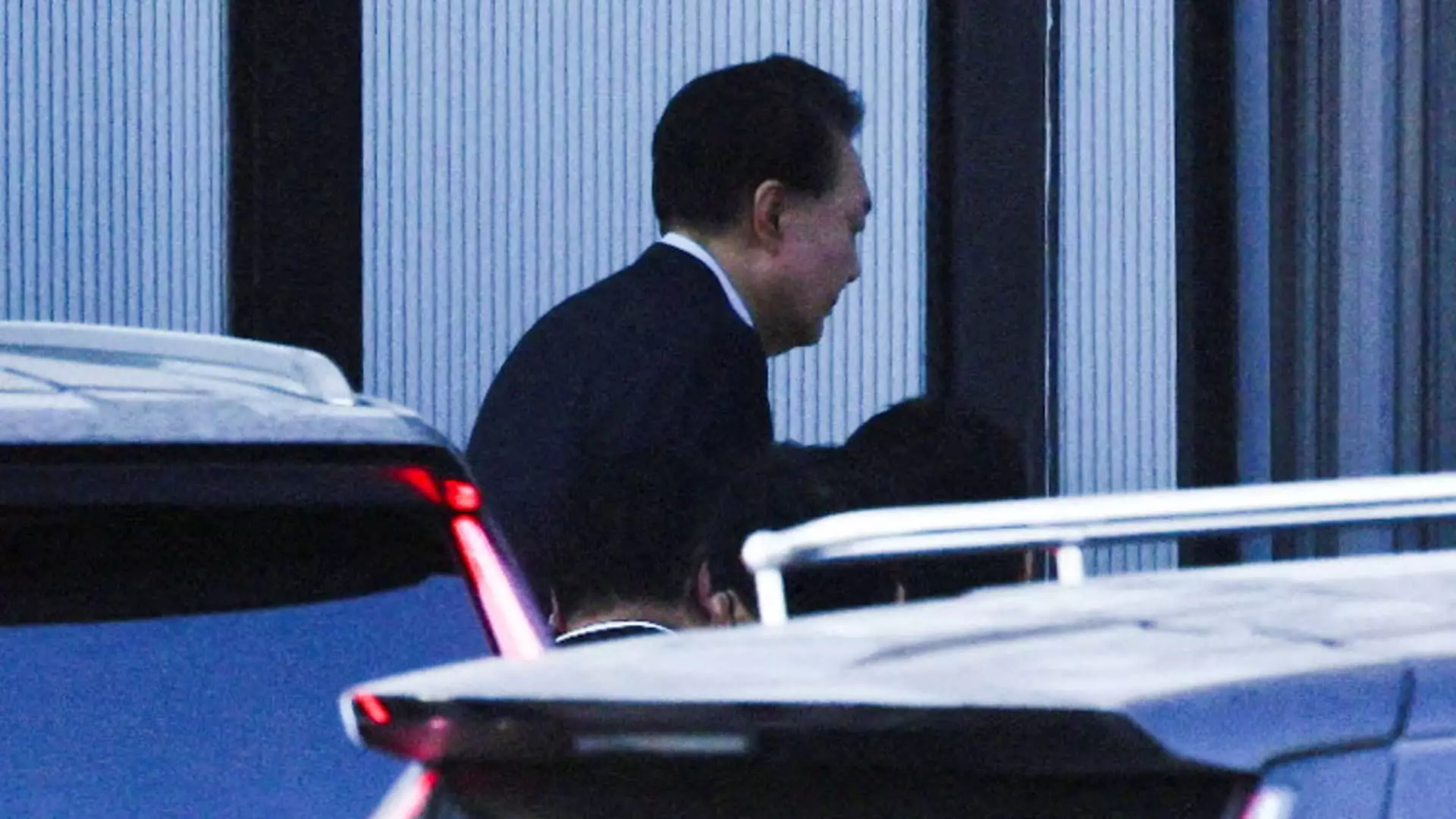The political landscape of South Korea has been profoundly shaken by the recent events surrounding President Yoon Suk Yeol, marking a historic moment in the nation’s governance. Yoon made headlines as he became the first sitting president to face arrest, embroiled in a serious legal situation regarding allegations of insurrection connected to his controversial martial law declaration last December. His detention has not only raised eyebrows but has also sparked sizable public sentiment and mass protests, illustrating just how polarized the country’s stance on Yoon has become.
On a significant court hearing day, Yoon faced investigators aiming to extend his detention, which highlighted the gravity of the accusations against him. As legal experts scrutinize the implications of this unprecedented event, the focus shifts towards the accusations of insurrection—an alleged crime that does not afford presidential immunity, thus complicating Yoon’s defense. The hearing, which extended for several hours, saw Yoon articulating his stance on the legitimacy and necessity of the martial law he enacted, attempting to paint it within a framework of legality and urgency.
Despite not engaging with investigators in the aftermath of his arrest, Yoon chose to participate actively in his hearing, showcasing his determination to reclaim his narrative and defend his actions publicly. This strategy reflects not only his legal counsel’s recommendations but also an intrinsic urge to maintain his presidency’s honor amidst turbulent waters. His attorney, Yoon Kab-keun, asserted that the president was committed to clarifying the factual underpinnings of the situation, indicating a desire for transparent accountability amid allegations.
A Polarized Public Reaction
Public reactions to the unfolding events have been decidedly mixed and largely dependent on political affiliation and views regarding Yoon’s presidency. While a fervent group of supporters rallied outside the courthouse, chanting for his release, the atmosphere also bore witness to moments of conflict with law enforcement. The police were compelled to manage crowds, resulting in several arrests, further stressing the raw emotions evoked by the political turmoil.
Statements from supporters underscored a belief in Yoon’s innocence and a vehement commitment to the rule of law, showcasing the deep divides within South Korean society. Yoon’s supporters expressed discontent at what they perceive as a politically motivated attack against him, coalescing around themes of loyalty and justice. Conversely, opposition voices voiced skepticism, arguing that such legal entanglements suggest a sordid chapter for the nation’s leadership and governance.
As Yoon Suk Yeol awaits the court’s decision following his hearing, the ramifications of these events will likely shape the future of South Korean politics. The outcome of this legal ordeal not only poses questions about Yoon’s presidency but introduces broader inquiries regarding governance, accountability, and public sentiment in a rapidly changing political environment. Whether Yoon can navigate these stormy waters and emerge intact will ultimately depend on the court’s judgment, but the fight for public perception and political survival is far from over.
This moment serves as a potential inflection point for South Korea, raising philosophical dilemmas about power, responsibility, and the critical need for legal integrity in government. As history observes, the actions taken by Yoon and the decisions rendered by the judiciary may very well redefine the landscape of South Korea’s political future.


Leave a Reply